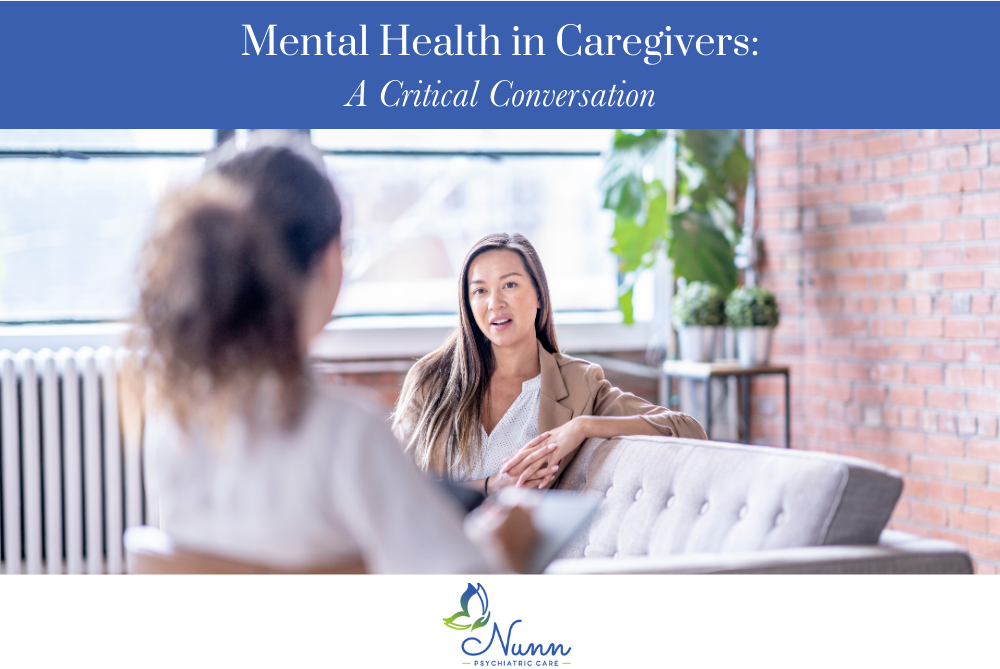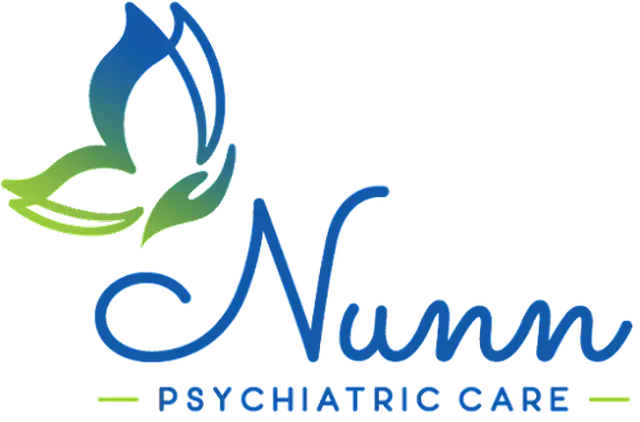
Caring for a loved one with a chronic illness, disability, or age-related condition is one of the most compassionate and selfless roles a person can take on. However, the emotional, mental, and physical toll caregiving can take is often overlooked. At Nunn Psychiatric Care, we recognize the vital role caregivers play in our communities and the unique mental health challenges they face. This blog explores the importance of caregiver mental health, common signs of stress and burnout, and how to seek support.
Understanding the Emotional Weight of Caregiving
Caregivers often put the needs of others before their own, resulting in long hours, disrupted routines, and emotional fatigue. Whether caring for an elderly parent, a child with special needs, or a spouse with a chronic illness, the caregiver’s mental health is frequently put on the back burner.
Emotional consequences can include:
- Chronic stress
- Anxiety and depression
- Feelings of guilt or resentment
- Social isolation
- Sleep disturbances
Physical consequences can include:
- Fatigue and exhaustion
- Headaches or muscle pain
- Weakened immune response
- Increased risk of chronic illness
When left unaddressed, these symptoms can escalate, negatively affecting both the caregiver’s health and the quality of care they provide.
Why Mental Health in Caregivers Matters
Supporting caregivers is not only essential for their well-being, but it also contributes to better care outcomes for the individuals they serve. A mentally healthy caregiver is more patient, focused, and emotionally available. Conversely, when a caregiver is overwhelmed, mistakes can happen, and relationships may suffer.
At Nunn Psychiatric Care, we advocate for proactive mental health care among caregivers through education, support systems, and therapeutic interventions tailored to their unique needs.
Tips for Maintaining Mental Health as a Caregiver
- Set Boundaries: Know your limits and don’t be afraid to say no when necessary. Healthy boundaries prevent burnout.
- Ask for Help: Enlist family members, friends, or professional caregivers to share the load when possible.
- Practice Self-Care: Make time for activities you enjoy. Even 30 minutes a day can make a difference.
- Stay Socially Connected: Isolation can worsen mental health struggles. Stay in touch with friends or consider joining a caregiver support group.
- Monitor Your Mental Health: Be aware of changes in mood, sleep, or appetite. Seek professional help if symptoms persist.
- Consider Counseling or Therapy: Speaking with a licensed mental health professional can provide emotional relief, coping strategies, and a nonjudgmental space to process your experiences.
How Nunn Psychiatric Care Can Help
At Nunn Psychiatric Care, we offer compassionate and confidential support to caregivers through:
- Individual therapy sessions
- Stress and anxiety management
- Medication management (if needed)
- Resources for caregiver support groups
- Family counseling to address dynamics and communication
Our team understands the unique challenges caregivers face, and we’re here to walk beside you every step of the way.
Frequently Asked Questions (FAQ)
Q: How do I know if I’m experiencing caregiver burnout?
A: Signs of burnout include constant fatigue, irritability, detachment, loss of interest in activities you once enjoyed, and difficulty concentrating. If you’re feeling overwhelmed most days, it’s important to seek help.
Q: Can caregivers experience depression or anxiety even if they love what they do?
A: Absolutely. Loving someone deeply doesn’t shield you from stress or emotional exhaustion. Mental health struggles are common in caregiving roles and do not reflect your commitment or love for the person you’re caring for.
Q: How can therapy help caregivers?
A: Therapy provides a safe space to express your feelings, learn coping mechanisms, and receive validation. It helps you understand your limits and equips you to manage emotional challenges more effectively.
Q: Is it okay to prioritize my own well-being?
A: Yes! You cannot pour from an empty cup. Prioritizing your mental and physical health ensures that you’re in the best possible condition to support others.
Q: What should I do if I feel isolated as a caregiver?
A: Reach out to local or online support groups, reconnect with friends and family, and consider talking to a mental health provider. Nunn Psychiatric Care can also connect you with resources in the community.
Contact Nunn Psychiatric Care
If you’re a caregiver struggling with your mental health, you’re not alone—and help is available. Let us support you in rediscovering balance and peace of mind.
Nunn Psychiatric Care
📍 113 Lincoln Dr, Hodgenville, KY 42748
📞 Phone: (270) 358-6221
Call us today to schedule an appointment or to learn more about our services for caregivers.
You take care of others. Let us take care of you.
Nunn Psychiatric Care—Your partner in mental wellness.
